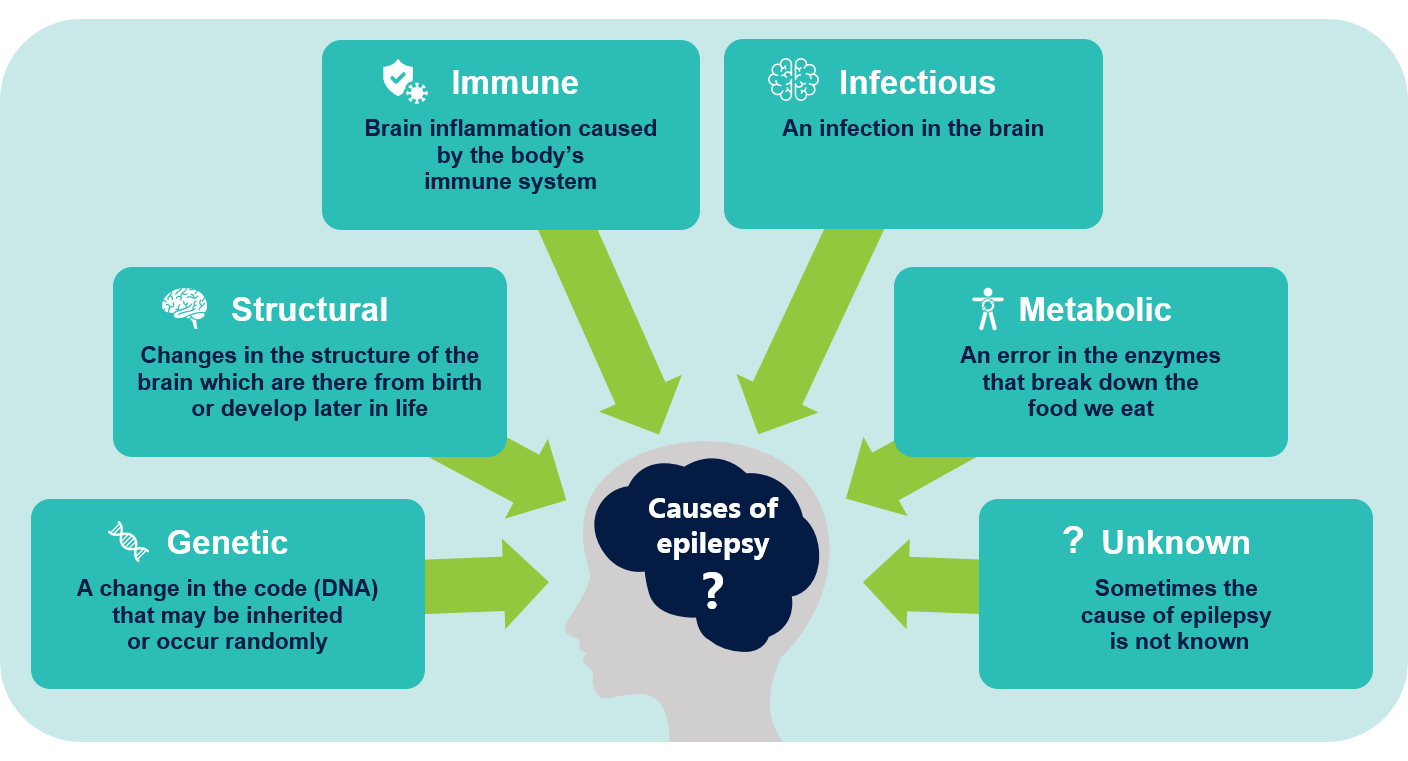Epilepsy is the tendency to have recurrent seizures which have not been provoked by a reversible cause such as fever.
A seizure occurs when there is a disruption to the normal electrical activity of the brain. Seizures vary in type, severity and intensity, and can manifest as changes in consciousness, movement, sensation, or behaviour.
There are many different causes of epilepsy. Your doctor will do a number of investigations to look for the cause. However, in 6 out of 10 children, no cause can be found.
The cause of epilepsy, when known, can be classified into several broad categories:
- Genetic - There is an underlying predisposition to having seizures. However, there is often no family history of seizures
- Structural - There is an underlying abnormality in the brain tissue that makes seizures more likely
- Immune - Epilepsy results directly from an immune disorder in which seizures are a core symptom of the disorder
- Infectious - Epilepsy results from a known infection in which seizures are a core symptom of the disorder
- Metabolic - The cells in the brain use energy in a way that makes them more prone to creating abnormal electrical activity
- Unknown - The cause of epilepsy is not yet known.

-------